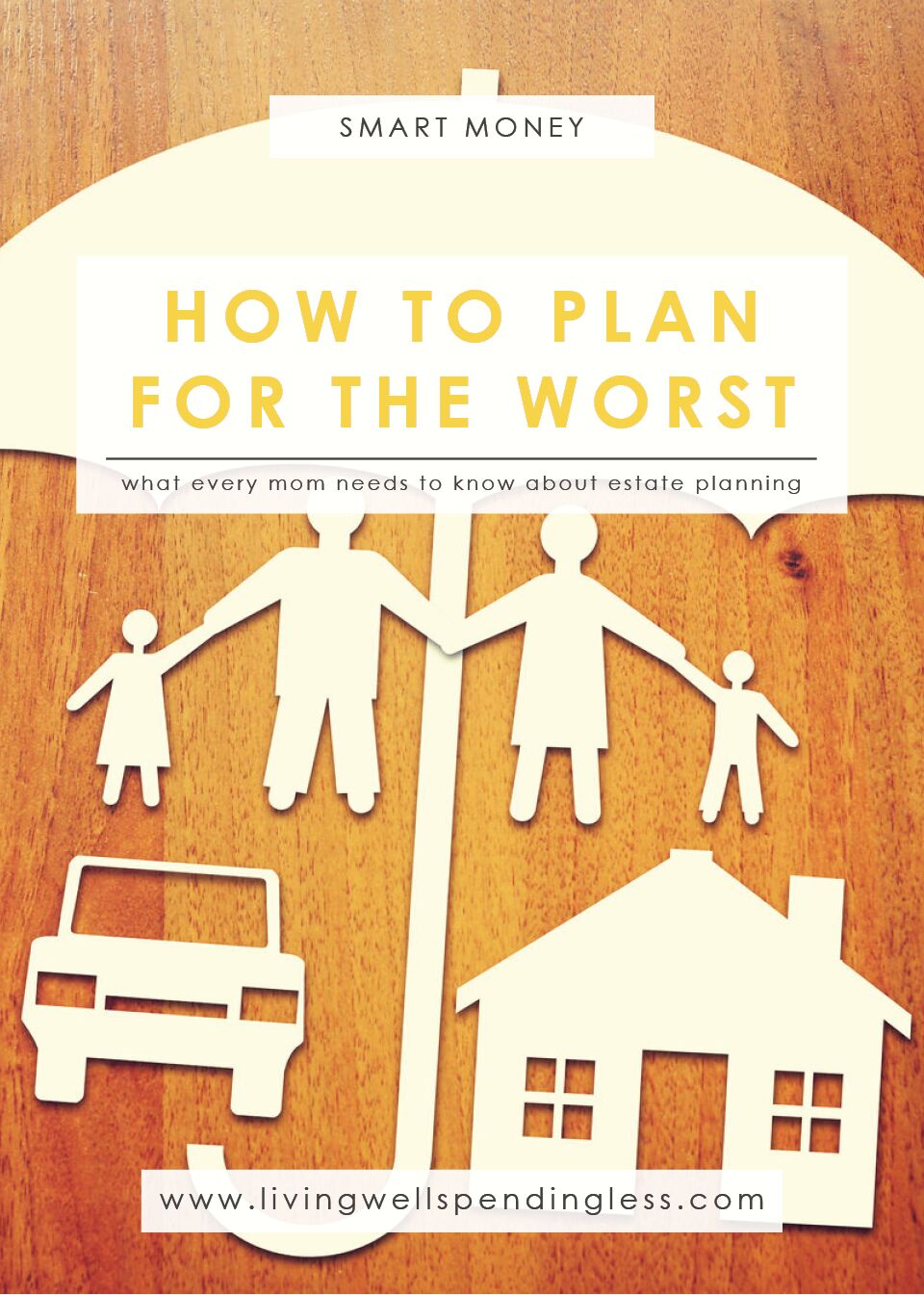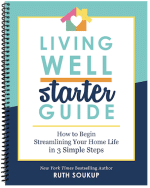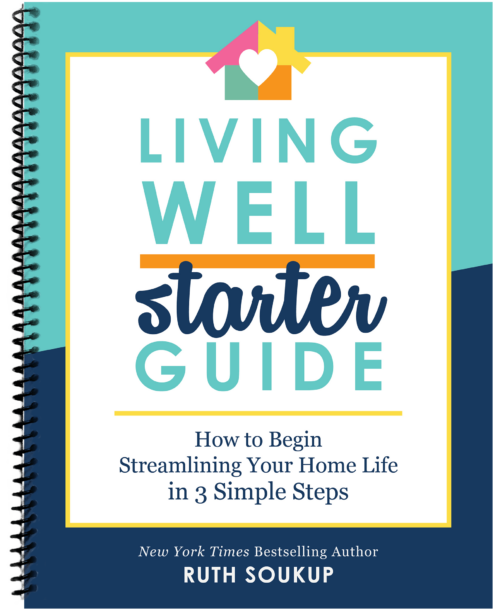
Nearly every day we hear news and stories about tragic accidents, illnesses and unexpected tragedies.
While estate planning can seem like a big, scary—even morbid—topic, the sobering truth is that we live in an uncertain world and any moment could be our last. As moms, we have a tendency to want to push these icky thoughts from our heads, believing that if we don’t talk about it, it won’t happen.
Unfortunately, this couldn’t be further from the truth.
If you are a parent, estate planning is vital to the well being of your family. After all, if your family must suddenly face the grief and loss of your absence, planning your affairs is the best way to comfort and provide continued care for your loved ones. Unfortunately, we can’t always predict the roads of life, but we can ease the worry and bring ourselves peace, knowing that if something happens, the people we love the most will be taken care of.
Starting the Conversation
I get it–just starting the estate planning conversation can be uncomfortable and daunting, even with your spouse. Before you begin, it helps to ensure both you and your spouse are in a relatively emotionally stable place, since extreme emotional stress will probably hinder your progress.. That said, it is also important not to delay the conversation. Know that it simply has to happen. Sometimes you have to dive right in.
Start by asking a poignant question that addresses what are surely mutual concerns, such as, “What would happen to our family if one of us falls ill?” Or try, “How can we be sure the girls will be cared for if something happens to us?” These tough (but necessary) questions can open the door to a broader conversation about creating a living will or discussing end-of-life health wishes.
While you’re talking, take notes and sketch out an outline of how you envision your plan as you go.

Here are a few of the estate planning points you will want to discuss & resolve:
- Your Children
Allow yourself to consider what would happen to your family if one of you passed, or if, God forbid, something happened to both of you. Who would you want to watch over your children? What are your wishes for their future? How would you plan to provide for them financially in the case of death or illness?

- Your End-of-Life Wishes
Yes, this is the part where you decide when it’s ok for your family to “pull the plug.” The life-support question is a tough one, but oh-so-important. This conversation can also include funeral and burial preferences (including religious service preferences). Determine who will act in your place to make healthcare decisions for you (who will have your medical power of attorney) and who will be the executor of your will and estate. (Your will executor is the person you name to be in charge of distributing your possessions and seeing your wishes are carried out.)
- Your Stuff
Who will you designate as beneficiaries? How will your things be divided up upon your death? Will you leave a portion of your estate to charity or leave it all to your family? If you and your spouse face debt, also consider how your debt might affect your surviving spouse or children. (Particularly concerned about debt? Read: Who Will Inherit Your Debt When You Die?)

Picking Your People
Now that you’ve addressed those tough questions, your notes should reveal the names of a handful of trusted friends and family members. Now it’s time to start branching out and having these (admittedly also tough!) conversations with those close friends or family members designated as your guardians and executors.
While it makes for great romantic comedy or YA plotlines, leaving your children to someone without an in-depth, face-to-face conversation (and legal documentation) is simply lunacy. Discuss your plans with the potential guardian and be candid in your discussion—while clearly each person has their own parenting style, wishes about education, discipline, religion and other important topics should definitely be addressed.
Don’t default and assign the most convenient person as your children’s potential guardian, to have your power of attorney or be the executor of your estate. Choose someone able to carry out your wishes who is most aligned with your personality, your values and your beliefs. Never choose any person out of guilt or obligation. This is a very difficult choice, but facing an already difficult situation, you need someone with a level head and strong integrity.

Get the Basics Covered
At minimum, you should have a will and life insurance coverage. According to Dave Ramsey, 70% of Americans die without a will. That statistic just blows my mind! You can create a will online for very little cost. You’ll also want a “living will” (your healthcare directive) which outlines your basic end-of-life wishes and dictates both medical and financial power of attorney.
Setting up your life insurance policy can also be relatively easy—and for a young, healthy couple, you can secure coverage for a minimal monthly or annual fee. Even if your life insurance policy isn’t millions of dollars, try to get coverage that will (at minimum) cover your funeral expenses and other costs, plus provide a window of relief for your family. If your family is dependent on your income, be sure to purchase a policy with enough life insurance benefits to cover the financial hardship, as well as to address debts (like your mortgage) and expenses that will arise in your absence.
Seek Professional Guidance
If you have investments, a larger estate or you’re hoping to leave a legacy for your very young children, a living trust may be the best option to help your beneficiaries avoid time-consuming and expensive legal fees just to access their inheritance. Trusts are definitely more complicated, so please seek financial and legal advice to ensure you’re choosing the right option for your estate.
Similarly, if you feel you have a more complex estate: investments, real estate, various savings plan types, multiple bank accounts, and multiple children and beneficiaries (children from a previous marriage, for example), seek the advice of an attorney.
Attorneys charge anywhere from $500 to thousands to setup estate plans. However, setting up your will correctly is worth every penny. If you’ve ever seen a family torn apart arguing over an estate, you’ll know what I mean. Grief can cause emotions to run very high, so having a clear outline and plan ensures your family will remain peaceful and comforted during a difficult time.

Consider the Paperwork
Be sure to consolidate your important documents and trust a friend or family member with instructions detailing how and where to access your paperwork and important information. (I shudder to think how awful it would be if your executor couldn’t find your will or couldn’t properly distribute your money, possessions and last wishes.)
Upon your passing, your attorney, your executor and/or surviving family members may need access to your will (of course), trust information, insurance information (life, home, other), real estate deeds and auto titles, stocks, bonds and annuities certificates, your bank account information (including safe deposit box info), retirement plan documents (401K/IRA) and debt information (including credit cards, loans, mortgages and unpaid taxes). Be sure you give this information to a few trusted friends and/or family members, in case (again, God forbid) something happens to multiple loved ones at the same time.
* * *
Estate planning is a necessary part of caring for your loved ones, so even though it can be time-consuming and sometimes expensive, think of this process as an investment in your family’s future. As a parent, you want to do everything possible to ensure your children are cared for and safe. See estate planning as an extension of that caring, and take care of it now. There’s really no time like the present!

TAKE BACK CONTROL OF YOUR HOME LIFE
 Ever feel like you just can't keep up? Our Living Well Starter Guide will show you how to start streamlining your life in just 3 simple steps. It's a game changer--get it free for a limited time!
Ever feel like you just can't keep up? Our Living Well Starter Guide will show you how to start streamlining your life in just 3 simple steps. It's a game changer--get it free for a limited time!
If you love this resource, be sure to check out our digital library of helpful tools and resources for cleaning faster, taking control of your budget, organizing your schedule, and getting food on the table easier than ever before.










This is so important! We actually just updated our trust this year–we had created it years ago, but since then a lot has changed, including having another child, selling our house and buying another one, and the couple that we had designated as guardians getting a divorce–so it was definitely time. The relief of having it all up-to-date now is huge.
This is something my husband and I were just talking about yesterday. Estate planning and life insurance is something we definitely plan on hopping on soon. It’s so very important.
Some excelent tips and pointers! I wish more parents with young children knew how important it is to protect their children and themselves with an estate plan.
This is perfect! It’s really hard to think about, but something very important. One of my goals is to set up better estate planning for our family (though I had neglected to find the perfect word to encompass all of it’s parts until I saw this post). Thanks for all the tips. I’m pinning this and it will come in handy in the future.
Thanks for sharing this! We’re so busy that we often overlook chores like estate planning. It’s really hard to talk about living wills and end-of-life plans, but it’s so important! Take Care.